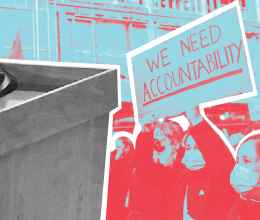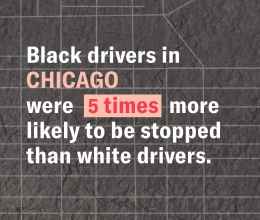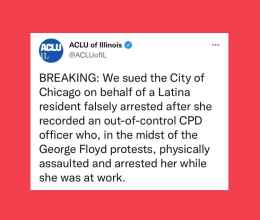
Today, the Independent Monitoring Team for the Chicago Police Department Consent Decree released its first report outlining the progress on reform efforts for the first reporting period (March 1 through August 31, 2019).
The below statement can be attributed to Karen Sheley, Director, Police Practices Project, ACLU of Illinois.
This is not the report card anyone hoped for, especially if the process of police reform is to yield long-term fixes for Chicago’s neighborhoods. The City and Chicago Police Department must do better than completing 25% of its work.
After just six months, the Monitor’s first compliance report finds that the City has missed 76% of the deadlines. Yet there is no mention the City’s plan to address these already-passed deadlines. Chicagoans deserve an explanation of how the City will achieve this work. We are operating under a court-enforced agreement, and the Court deserves an explanation as well.
Some of the deadlines missed by CPD are fundamental to reform. CPD has not completed the policy on investigations of when officers shoot and kill people. Policies on use of force are incomplete. There is also no policy on how officers will respond to being audio and video recorded.
The Monitor also identifies hurdles to catching up. The report notes that the Department lacks resources in policy drafting, training, crisis intervention, and in the unit that reviews uses of force. Further, she pinpoints failures in the Department’s cooperation in the first period. The report specifically notes that CPD failed to collaborate with the Monitor and Attorney General’s Office in the development of policies.
This lack of transparency is aggravating community concerns about engagement in the decree process. The Monitor states that CPD’s current method of community engagement “effectively disenfranchises Chicago community members and prevents them from providing input and comments in the formative stages of the policy development process.”
Again, the City needs a plan for how it will get back on schedule with the consent decree process. It also needs a plan to involve community members in this important work. The work cannot wait since the Monitor plans, in March of 2020, to assess another 60 paragraphs of the consent decree. Given how important this work is, we should all be asking: “where’s the plan?”



